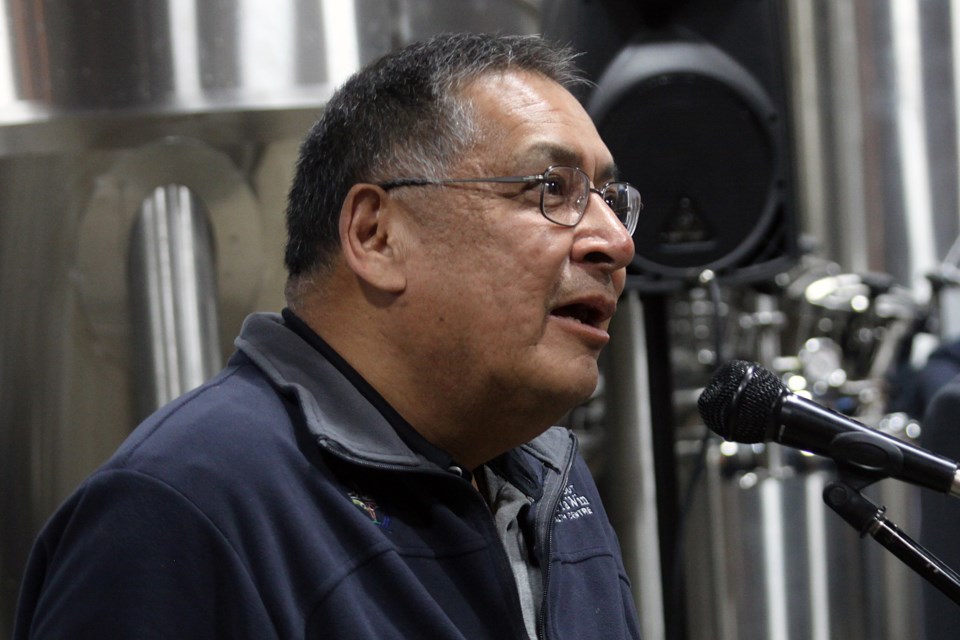THUNDER BAY – Residential school survivors gathered at a hotel on Highway 61 this week to discuss their experiences and how the Bringing Our Children Home Initiative should move forward.
The initiative, also named Bikiiwewinig Nindawaashishiiminaanak, is investigating the possibility of unmarked graves where the Pelican Lake Indian Residential School once operated.
Bringing Our Children Home “was created and led by survivors to uncover the truth,” Lac Seul Chief Clifford Bull said Thursday during a break in proceedings.
He and his band council started the initiative after researchers concluded in 2021 that there are more than 200 possible unmarked graves at the old site of the Kamloops Indian Residential School in British Columbia.
The Sioux Lookout First Nations Health Authority and Northern Nishnawbe Education Council are partners with Lac Seul as the initiative looks into whether lost children from the Northwestern Ontario school could be buried beneath its former grounds.
The Pelican Lake school operated for about 50 years starting in 1927, so there is a huge volume of records both from the school and from 33 First Nations to be reviewed, Bull said.
“This is a very long process and we want to make sure that the process is done correctly and is survivor-led,” he said.
“There’s also a lot of research that needs to be done in terms of how many students went to Pelican Residential School and how many children went missing, and there are records everywhere, so the work is very hard.
“It’s very time consuming and it’s going to take years and years,” he said.
“We’re on our third year and coming into our fourth summer here, and we developed seven protocols by the survivors and it deals with different aspects of the initiative.”
A document from the initiative identifies the protocols or guiding principles as truth, searches, reconciliation, reclamation, healing, communication and repatriation.
Bull said talking to survivors about their experiences at Pelican Lake can trigger emotional distress, “and we have mental health support staff on hand if someone is triggered.”
How the former school grounds will be searched – by ground-penetrating radar, which was used at the Kamloops site, or with some other technology – is yet to be determined, he said.
A key question for later is whether exhumation should take place if investigation finds anomalies that could be burial sites, he added.
Some might consider exhumation to be a violation of sacred principles, he said, so “we need to be very careful how we proceed.”
Also being eyed for a closer look is the site of a hospital that operated near the residential school.
“We believe some of the children that were sick, whether it be tuberculosis or whatever, may have been sent there,” Bull said. “So we want to search that.”
